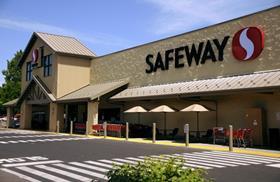
One of North America’s leading retailers, Safeway, has expanded its use of reusable shipping containers for fresh produce.
The move highlights the effective sustainability initiatives in place throughout company’s supply chain, Safeway said in a press release.
The transition to using reusable product containers (RPCs), rather than corrugated boxes, to ship many types of produce from the fields, through the distribution channel and to final store destination has eliminated the use of over 17m lbs of corrugated boxes.
Safeway said it has also avoided the harvesting of approximately 114,000 trees and reduced 37,518 tonnes of greenhouse gas emissions (CO2E) from the environment, equivalent to removing 6,872 passenger cars off the road.
Safeway claims to have used RPCs for decades on many of its consumer brand categories, including bread, milk and soda.
The company began testing RPCs in its distribution system for fresh wet-pack produce — fruits and vegetables kept on ice until they reach the store — in early 2010.
Safeway’s major supplier of RPCs, IFCO Systems, said the retailer’s implementation of RPC usage to decrease waste was the fastest and most aggressive programme roll-out to date.
“This expansion into produce is a natural extension of best practices in logistics,” explained Safeway vice-president of transportation Tom Nartker.
“Safeway will continue to look for opportunities to expand the usage of RPCs into additional categories to have an even greater positive environmental impact.”



